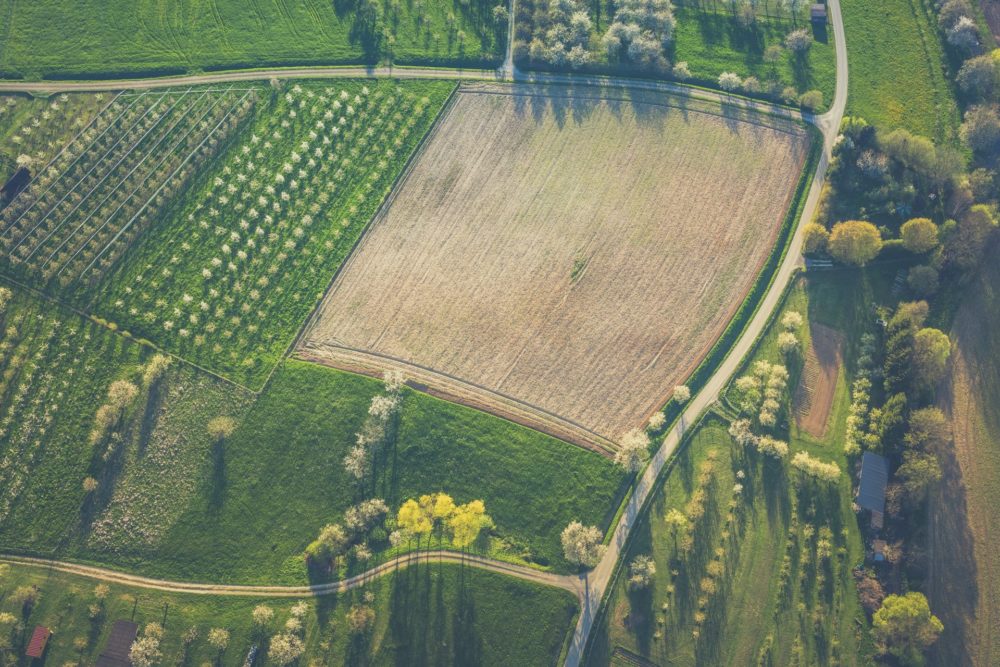Land access is one of the biggest problems plaguing agriculture in the US. From finding leases before they get snapped up to making a land purchase or extending their existing acreage, farmers often lack the capital or connections they need.
Then, on the finance side, many investors may find farmland an intriguing proposition – but they simply don’t know where to begin.
Enter: AcreTrader.
“Liquidity, access, and transparency – all of those things are material problems,” AcreTrader founder and CEO Carter Malloy tells AFN.
“There’s up to $100 billion of agricultural land that trades hands every year in the US and most often it is done offline or in an old school, non-technology enabled fashion. In rare cases is it done with full transparency where both the buyer and seller understand all of the mechanics of the transaction and the land itself,” he says.
“Our core goal is to help bring more efficient transactions to this market.”
The Fayetteville, Arkansas-based startup today announced a $12 million Series A funding round, with Jump Capital, Narya Capital, Revolution’s Rise of the Rest Seed Fund, and existing investors RZC Investments and Revel Partners among the participants. The round brings its total funding to date to $18 million.
AcreTrader’s online marketplace targets both investors and farmers. On the one hand, users can invest in farmland “seamlessly” in a matter of minutes, according to Malloy. The AcreTrader team performs “intense diligence” to vet each purchase and handles all ancillary aspects such as administration, property management, insurance, and accounting, he adds.
On the farmer side of the equation, AcreTrader describes itself as a “source of growth capital” that also works with with local farmers to improve soil health and sustainability.
“The farmers help us find land they want to farm and we provide the financing for that land and the operation,” Malloy explains. “We’re not just buying something and walking away. We will make heavy investments into that land.”
AcreTrader’s customers tend to be established farmers seeking expansion opportunities, and the startup comes in as a capital partner.
In one recent example of a campaign on the platform, a Washington-based apple grower recently raised $4 million in 19 minutes to expand their organic production capabilities, according to Malloy.
AcreTrader will also allow farmers to co-invest in properties if they have some capital to chip in on the frontend. This can offer an attractive sweet spot for farmers who have capital for a downpayment but may not be able to afford an outright purchase.
Similarly to how it handles procedural matters for investors, AcreTrader takes care of payments, paperwork, and other aspects of land ownership so the farmer can focus on farming.
When it comes to repayment, there are a variety of options on the table – including a traditional landlord-tenant relationship, or a profit share.
“For the farmer, dealing with us is very simple because this is all we do every day. Likewise, for the investors, it’s easier because they can invest smaller amounts of money and have exposure to that asset class,” Malloy says.
Expanding a new type of investment and financing tool
Malloy describes AcreTrader as being in the ‘hockey stick’ inflection point of growth. Although it’s still early days for the company, business is “growing like a weed,” he says. Over the last year, AcreTrader doubled its employee count and increased the funds flowing through its platform 12x.
Investors from 48 US states are active on the platform. They come from a wide variety of backgrounds, according to Malloy.
“Some of them are intensely ingrained in the farming community. Some are farmers themselves and have farm investments all over the place. Some of them are far more passive.”
Convincing farmers and investors to give the AcreTrader process a try can be challenging, he admits. The first step requires gaining a potential client’s trust in the process, which has led to a focus on relationship-building.
“If we are always transparent about what we do and we show people the ups and downs of everything, then that helps facilitate the relationship,” Malloy says.
“We certainly want to be cautious around farming risk and hedge that out, but there are certain realities – like alternate bearing trees. If you invest in pistachios one year and do great, the next year you don’t do great because they bear fruit on cycles. But I think the investors and farmers are taking a long-term view [to] understanding how productive an operation can be over a longer time horizon.”
A few other US startup efforts around farmland access and transparency include Tillable’s “hassle-free lease” platform — which lets farmers bid on potential leases — and CashRent, which raised seed funding earlier this year in a bid to “bring more accuracy and fairness” to farmland rental pricing.




